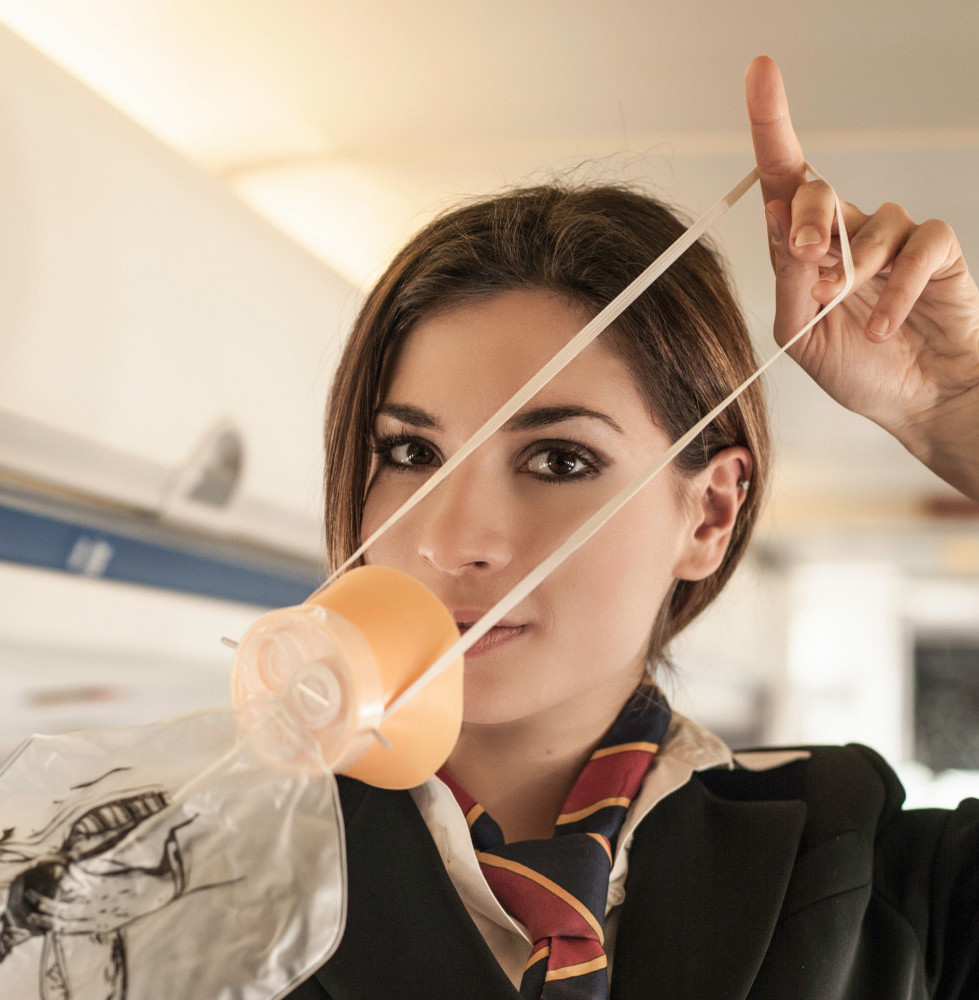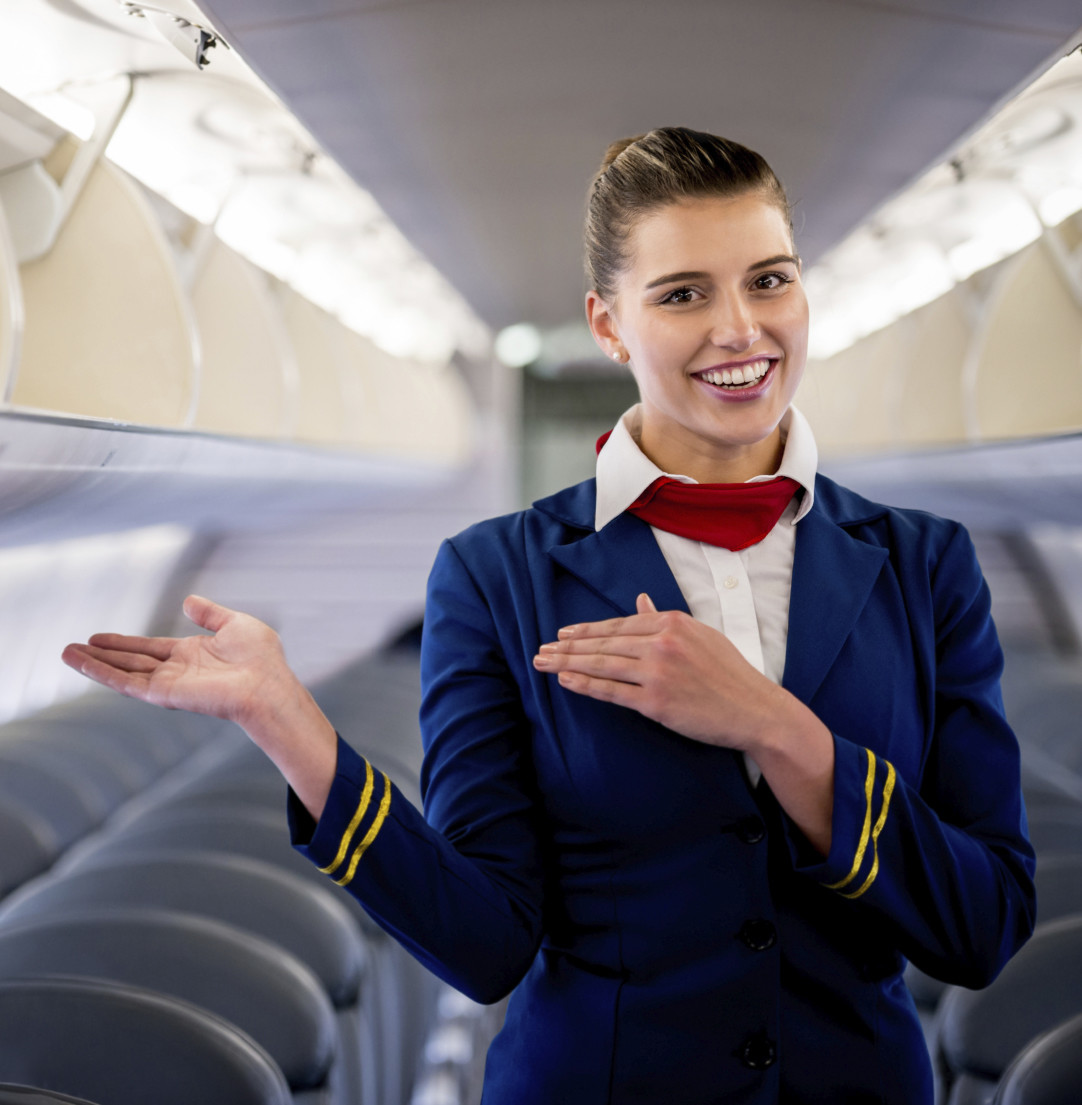Role of cabin crew

Providing an exceptional level of customer service to passengers during their trip is a key responsibility of a cabin crew. This service, delivered with a “happy and helping way” attitude, ensures the comfort and safety of passengers.
In addition to customer service, cabin crew members shoulder numerous other responsibilities. As a passenger, you might not realize that their role extends beyond serving you a drink and pretzels!
The most critical aspect of their job involves possessing the confidence and knowledge to handle any emergency or security issues that might arise.
A cabin crew member must check the condition of all safety and emergency equipment before each take-off. They must also stow it properly according to the cabin layout, considering the specific type of aircraft.
Role of cabin crew
A steward or a cabin crew must show in a friendly way and welcoming attitude at all times with her passengers, and must consistently provide an exemplary standard of customer service and maintain it throughout the flight.
It is essential that cabin crew physically demonstrate to passengers emergency evacuation procedures and the use of specific safety equipment such as lifejackets, seat belts and the use of oxygen masks in case of any decompression.
Cabin crew must administer as well first aid to passengers according to a specific training by the airline. The cabin crew must treat everyone as an individual, which includes respect for every customer regardless of their class of cabin.
Flight tasks may vary slightly depending on whether it is short or long-haul and rely on the number of the cabin crew member you are working with. However, they usually include:
-
Cabin crew members attend a pre-flight briefing where they receive their on-board positions. They also learn about flight details, schedules, and passengers with special requirements such as those requesting special meals, wheelchair passengers, VIPs on board, elderly passengers, or babies needing baby seats.
- Pre-flight tasks include cabin crew members checking safety equipment, ensuring the aircraft’s cleanliness and tidiness, verifying the presence of all meals (including special dietary requests), and performing a preflight check of the first aid equipment.
- Once passengers board, cabin crew members greet them and guide them to their seats while assisting with hand luggage. They inform passengers about aircraft safety procedures and ensure all hand luggage is stowed away and unobstructed.
-
Before takeoff, they check all passenger seat belts and secure the galleys. They also ensure that the galleys are secure.
- Cabin crew members make announcements and keep passengers informed of any delays. They remain visible in the cabin during the flight to answer passengers’ questions.They serve meals and refreshments to passengers and sell tax-free items, informing passengers of any allowance restrictions at their destination.
- In emergency situations, they reassure passengers and ensure they are following safety procedures correctly. They provide first aid to passengers if necessary, always demonstrating a calm approach.
- At the end of a flight, they ensure that passengers disembark safely and check that there is no luggage left in the overhead compartments, toilets, and galley areas.
- They complete documents such as stock control, recording flaws or problems during the flight, and liaise with ground staff.
Teamwork and effective communication skills:
Two elements are crucial for a harmonious team and achieving passenger satisfaction: maintaining a positive demeanor, even on tough days, and ensuring repeat customers for your airline.
The class you work in as a cabin crew member depends on the airline. You could be serving in first class, business, or economy class. Some aircraft may have a high-density, single-class configuration. For instance, if you’re working for a charter airline company like Ryanair, it’s likely to be an economy class. However, airlines like British Airways may offer 2, 3, or 4 different cabins depending on the aircraft and destination type. These could include First, Club, Traveler, or Traveler Plus.
Welcoming passenger:
During your training with an airline, you’ll become familiar with the nuances of each cabin, preparing you to perform your duties effectively. Regardless of the cabin class you’re working in, it’s crucial to treat all passengers equally.
Greet every passenger with genuine warmth and sincerity, mirroring the treatment you receive. Making passengers feel valued for choosing your airline is key to securing repeat business. This is a point worth mentioning on your evaluation day!
Exceptional customer service:
Is essential to the reputation and survival of an airline. How many times have you heard people say “we had a wonderful flight because the cabin staff went the extra mile and gave us an extra meal because we missed lunch”. Or “the crew managed to sit together because we had been separated at check-in”. It is not just about serving tea and coffee with a smile, but adding a personal touch, and at the end of the day, the airline asks you to be “you”.

